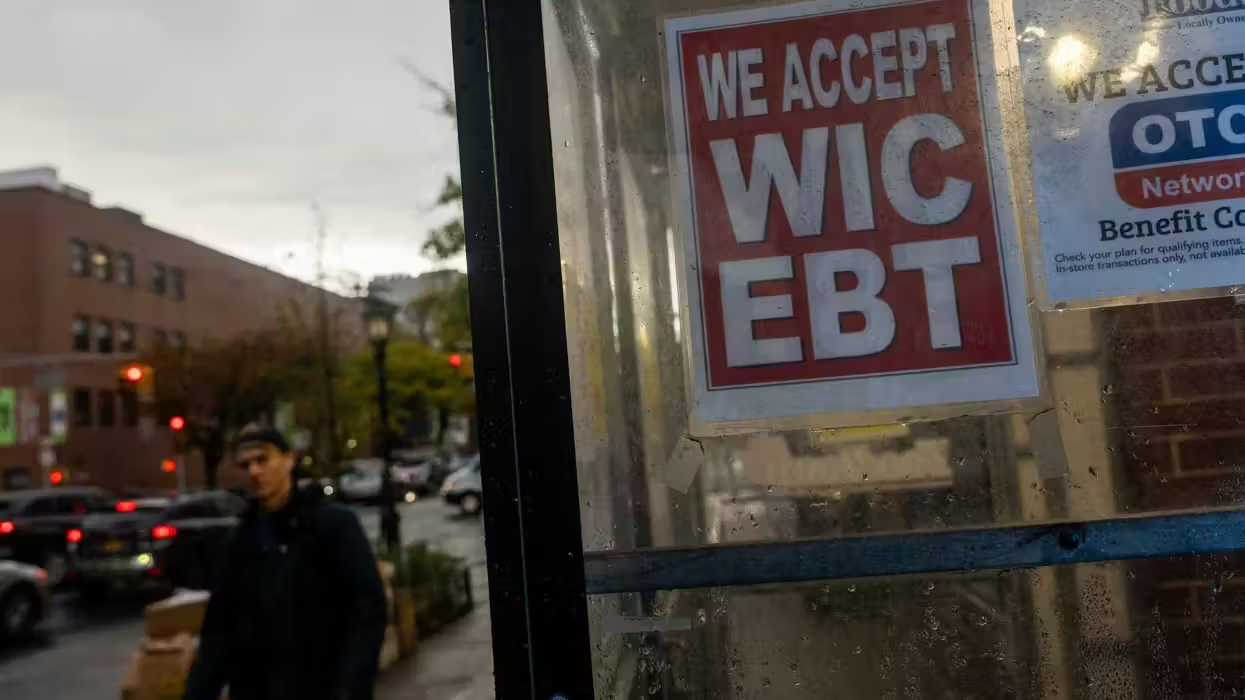
© 2025 Blaze Media LLC. All rights reserved.
"it doesn’t seem to make a lot of sense...to pay fines or fees...for stuff that literally isn’t available"
Companies supplying motor fuel will have to pay approximately $6.8 million in fines to the Treasury because they failed to “mix a special type of biofuel into their gasoline and diesel,” writes Matthew L. Wald of the New York Times.
However, the fine isn’t the worst part. The worst part is the fact that the refiners could have tried everything in their power to remain in compliance with standards set by the 2007 Energy Independence and Security Act, and it might not have mattered.
Why? Because there is not enough of this “special type of biofuel” to go around. In fact, with the exception of some scattered workshops and laboratories, "the ingredient, cellulosic biofuel, does not exist," according to the Times report.
And by 2012, these companies are expected to pay even higher penalties for failing to include cellulosic biofuel in their product. Refiners were required to blend 6.6 million gallons into gasoline and diesel in 2011 and face a quota of 8.65 million gallons this year, according to the Times.
That seems like an awfully difficult task considering cellulosic biofuel doesn't exist in the amounts required.
“It belies logic,” Charles T. Drevna, the president of the National Petrochemicals and Refiners Association, said of the 2011 quota, according to the Times. And raising the quota for 2012 when there is no production makes even less sense, he said.
The reasoning behind the Energy Independence and Security Act? Rules like the one ordering refiners to blend cellulosic biofuel with their product would help reduce greenhouse gas emission. However, even supporters of “green energy” are starting to admit that, yeah, the penalties are a little unreasonable.
“From a taxpayer/consumer standpoint, it doesn’t seem to make a lot of sense that we would require blenders to pay fines or fees or whatever for stuff that literally isn’t available,” said Dennis V. McGinn, a retired vice admiral who serves on the American Council on Renewable Energy.
Michael J. McAdams, executive director of the Advanced Biofuels Association, said the technology for turning biological material into hydrocarbons wasn’t advanced enough for commercial introduction when the 2007 bill was passed – and that they’ve only made minor advances since.
“There are some that are closer to the beaker and some that are closer to the barrel,” he said.
Wald reports:
The Texas renewable fuels company KiOR, for example, has broken ground on a plant in Columbus, Miss., that plans to start turning Southern yellow pine chips into gasoline and diesel components in the fourth quarter of 2012 at an annual rate of 11 million gallons, although Matthew Hargarten, a spokesman, said the quantity to be produced this year might be adjusted.
But this has not deterred McGinn and Cathy Milbourn, an E.P.A. spokeswoman, from defending the energy statute.
“I am absolutely convinced from a national security perspective and an economic perspective that the renewable fuel standard, writ large, is the right thing to do,” said McGinn.
Milbourn maintains that the 8.65-million-gallon quota for "cellulosic ethanol" for 2012 was “reasonably attainable.” By setting a quota, she added, “we avoid a situation where real cellulosic biofuel production exceeds the mandated volume,” which would weaken demand, writes Wald.
So, let's see if we got this straight: Congress passed a bill in 2007 requiring refiners to blend cellulosic biofuel with their gasoline and diesel. However, when the 2007 bill was passed, the companies making the biofuel were nowhere near able to produce it in the amounts required by the bill. And refiners are going to be fined approximately $6.8 million for failing to use a biofuel that "does not exist."
Does any of this seem reasonable?
But wait! There’s something else. Wald reports:
One possible early source is the energy company Poet, a large producer of ethanol from corn kernels. The company is doing early work now on a site in Emmetsburg, Iowa, that is supposed to produce up to 25 million gallons a year of fuel alcohol beginning in 2013 from corn cobs.And Mascoma, a company partly owned by General Motors, announced last month that it would get up to $80 million from the Energy Department to help build a plant in Kinross, Mich., that is supposed to make fuel alcohol from wood waste. Valero Energy, the oil company, and the State of Michigan are also providing funds.
Yet other cellulosic fuel efforts have faltered. A year ago, after it was offered more than $150 million in government grants, Range Fuels closed a commercial factory in Soperton, Ga., where pine chips were to be turned into fuel alcohols, because it ran into technological problems.
So, Congress passed a bill ordering refiners to add a certain type of biofuel to their product, and the only entities (discounting the defunct Range Fuels) that are anywhere near being able to produce it in the amounts needed are the privately owned Poet and a company owned in part by General Motors (Mascoma)?
Interesting.
Want to leave a tip?
We answer to you. Help keep our content free of advertisers and big tech censorship by leaving a tip today.
Want to join the conversation?
Already a subscriber?
more stories
Sign up for the Blaze newsletter
By signing up, you agree to our Privacy Policy and Terms of Use, and agree to receive content that may sometimes include advertisements. You may opt out at any time.
Related Content
© 2025 Blaze Media LLC. All rights reserved.
Get the stories that matter most delivered directly to your inbox.
By signing up, you agree to our Privacy Policy and Terms of Use, and agree to receive content that may sometimes include advertisements. You may opt out at any time.






